Newsletter
Subscribe to Newsletter
Stay informed and always up to date with KATTOVIT. Be the first to hear about new products, discounts, advice texts, etc.
Schon ab 30€ ist deine Bestellung versandkostenfrei!
Mit deiner Anmeldung erklärst du dich mit unserer Datenschutzerklärung einverstanden.
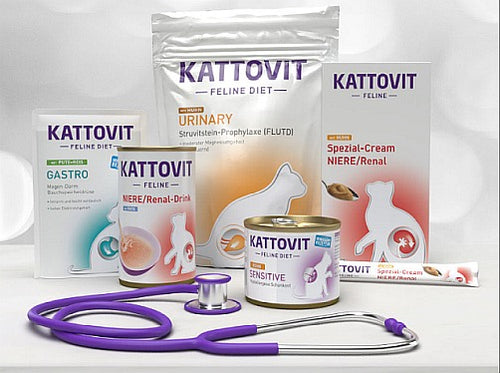
Mit deiner Anmeldung erklärst du dich mit unserer Datenschutzerklärung einverstanden.
Cart
Your cart is empty
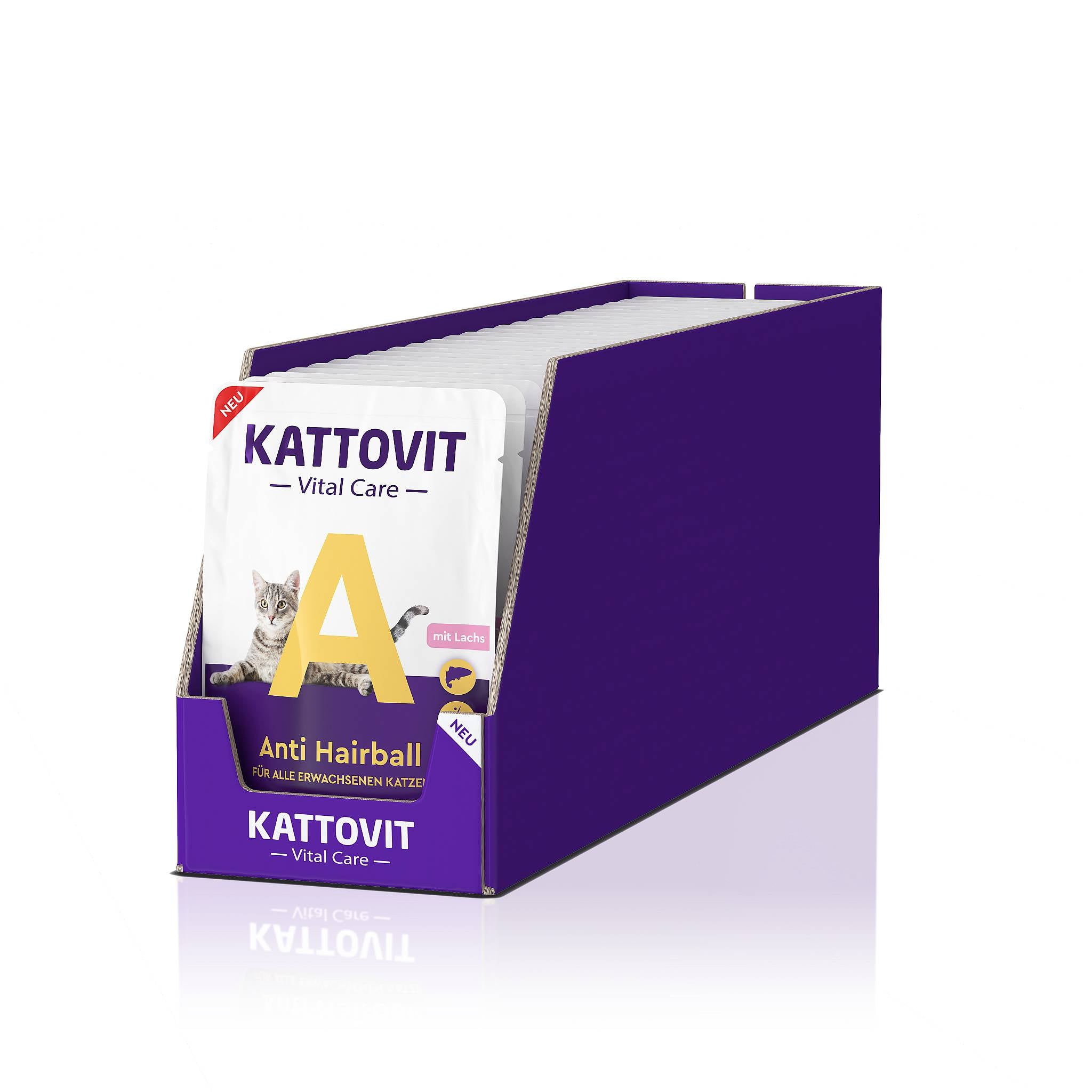

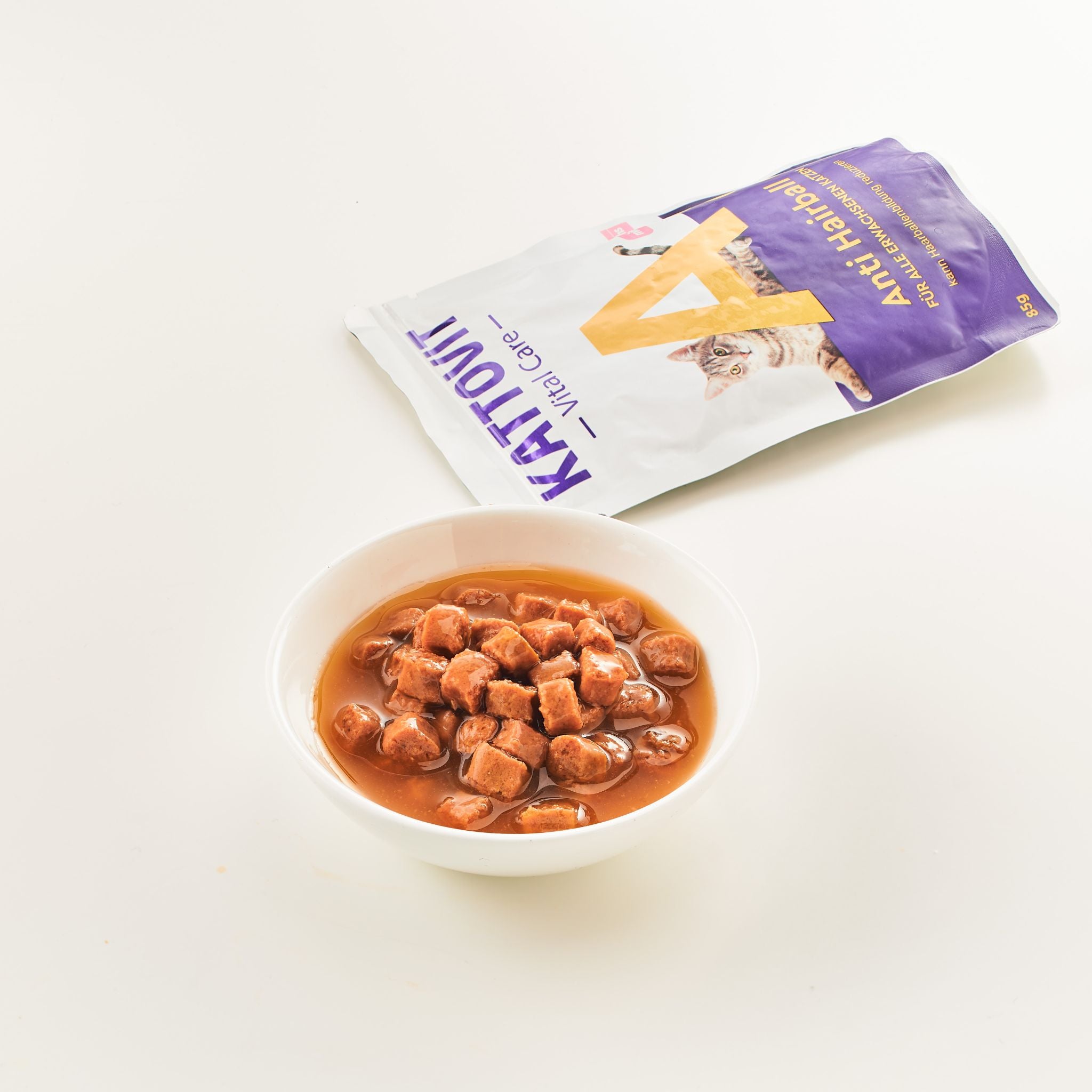

, inkl. MwSt. zzgl. Versand
• for all adult cats
• can reduce hairball formation
• tender pieces in sauce with salmon
• particularly tasty



Lieferzeit: 1 – 2 Werktage
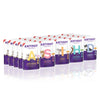
KATTOVIT Vital Care Anti Hairball can reduce hairball formation thanks to the addition of malt and is enriched with tasty salmon.
KATTOVIT Vital Care was developed with nutrition experts and combines functional nutrition with excellent taste. This balanced complete food can help your cat to live a more vital life.
Protect Complex - by enriching it with taurine and vitamin A, which must be actively added to a cat, the immune system can be strengthened by this special active ingredient formula.
Meat and animal by-products, fish and fish by-products (4% salmon), vegetable by-products, 2% malt, oils and fats, minerals
9.0% crude protein, 5.0% fat content, 2.0% crude fiber, 2.2% crude ash, 82.0% moisture content, 0.25% calcium, 0.20% phosphorus, calorie content: 89 kcal / 100g
Nutritional additives/kg: Vitamin A: 1,040IU, Vitamin D3: 125IU, Vitamin E (as all-rac-alpha-tocopheryl acetate): 20mg, Iron (as iron (II) sulfate, monohydrate): 40mg, Zinc (as zinc oxide): 28mg, Copper (as copper (II) sulfate, pentahydrate): 1.2mg, Manganese (as manganese (II) sulfate): 1mg, Iodine (as potassium iodide): 0.6mg, Taurine: 1,000mg, L-carnitine: 50mg
top bewertungen
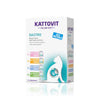
bestseller
Wet food | Multibox | Gastro | 12 x 85g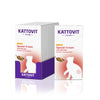
bestseller
Snack | Special Cream | Box | 11 x 6 x 15g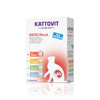
Diet food for cats
Wet food | Multibox | Kidney-Renal | 12 x 85g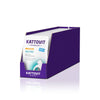
bestseller
Wet food | Chicken & Rice | Fresh pouch | 24 x 85g
bestseller
Wellness Box | sample package | 25 x 85g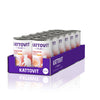
bestseller
Drink | Chicken | Can | 12 x 135ml
bestseller
Wet food | Chicken & Rice | Fresh pouch | 24 x 85gYour questions - our answers!
frequently asked Questions
Vomiting hairballs is initially quite normal in cats and is part of everyday life. As a rule, cats regurgitate hairballs around once or twice a week. As they swallow a lot of hair in the course of grooming, hairballs can also be found in their faeces. If your cat is a long-haired cat or a cat with a particularly thick undercoat, it may vomit hairballs more often. Your cat may also regurgitate hairballs more frequently in spring or autumn due to the change of coat, but if your cat regurgitates large hairballs unusually often, you should take note. Unsuccessful attempts to retch, vomit or defecate are also clear warning signs. The hairballs in your cat's stomach may be too large to get rid of naturally. Affected velvet paws often show loss of appetite and tenderness in the abdominal region. Vomiting of undigested food or diarrhoea are also possible. Consult a vet immediately at the first sign of hairballs, as they can otherwise lead to inflammation and an intestinal blockage.
Translated with DeepL.com (free version)
If your cat frequently vomits hairballs or generally has a lot of fur and sheds a lot, you can help her in various ways: Brush and comb their fur regularly and remove loose and dead hair so that your velvet paw does not swallow it. This will prevent hairballs from forming. You can also make it easier for your cat to vomit hairballs or excrete them in their faeces. To do this, you should change your cat's diet to several small meals of wet or dry food per day to stimulate intestinal activity, and if your cat has difficulty excreting hairballs, you can help with cat grass. To do this, place one or more pots of special cat grass for your indoor cat. The cat grass triggers a gag reflex and helps the cat to vomit up the hairballs. Fibre-rich food with lots of fibre and malt paste can also help the animal to eliminate hairballs via the intestines. If this does not work and you notice that your furry friend is unwell and is suffering from abdominal pain, diarrhoea or vomiting, for example, you should consult a vet immediately.
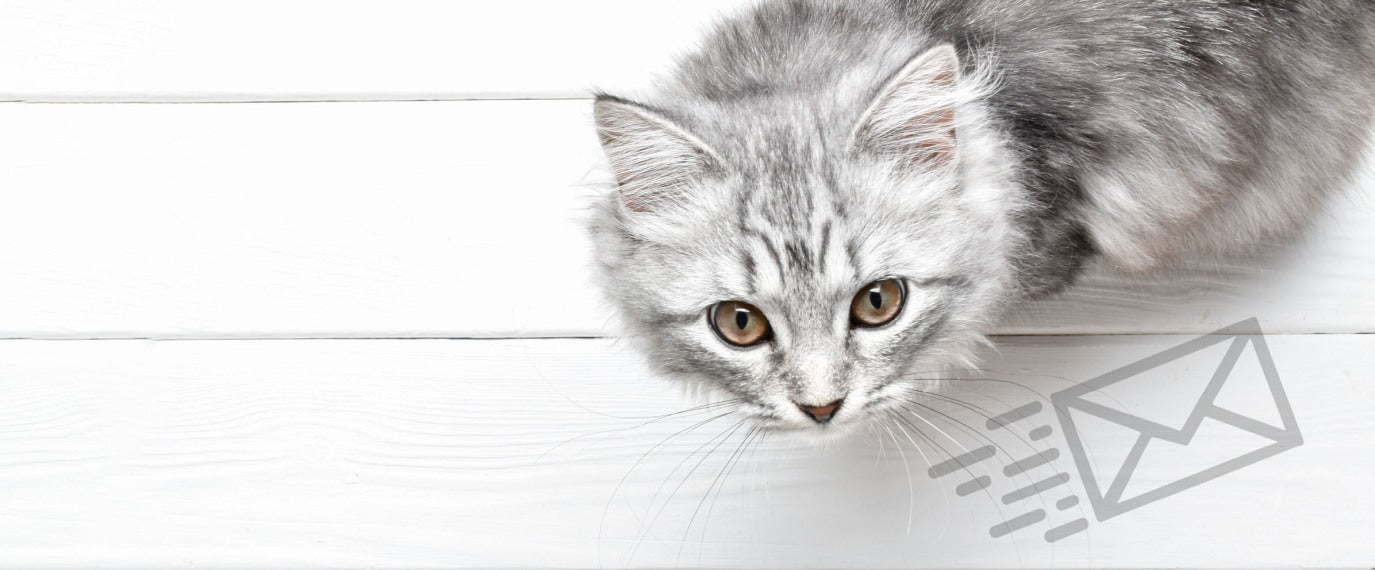
Newsletter
Subscribe to Newsletter
Stay informed and always up to date with KATTOVIT. Be the first to hear about new products, discounts, advice texts, etc.
Proven Quality
Tested quality based on the latest veterinary findings
Always fresh
Guaranteed freshness, directly from the manufacturer - for the best care for your pet.
40 years of experience
More than 40 years of experience and expertise in the production of high-quality animal feed.
Einfache & sichere Bezahlung